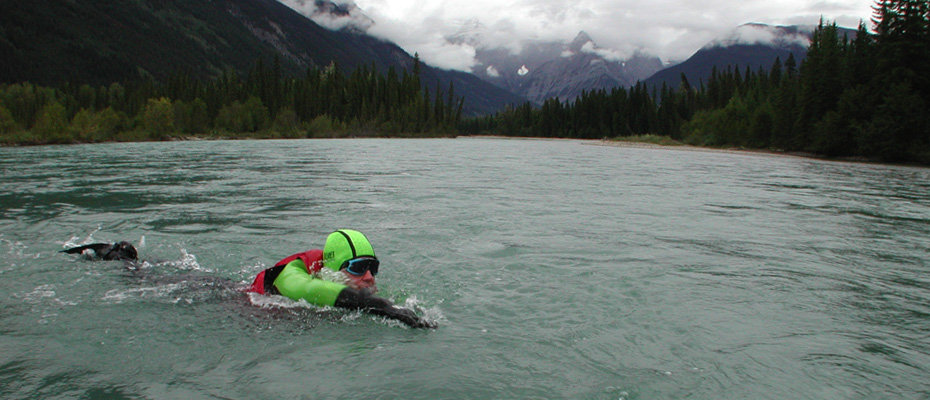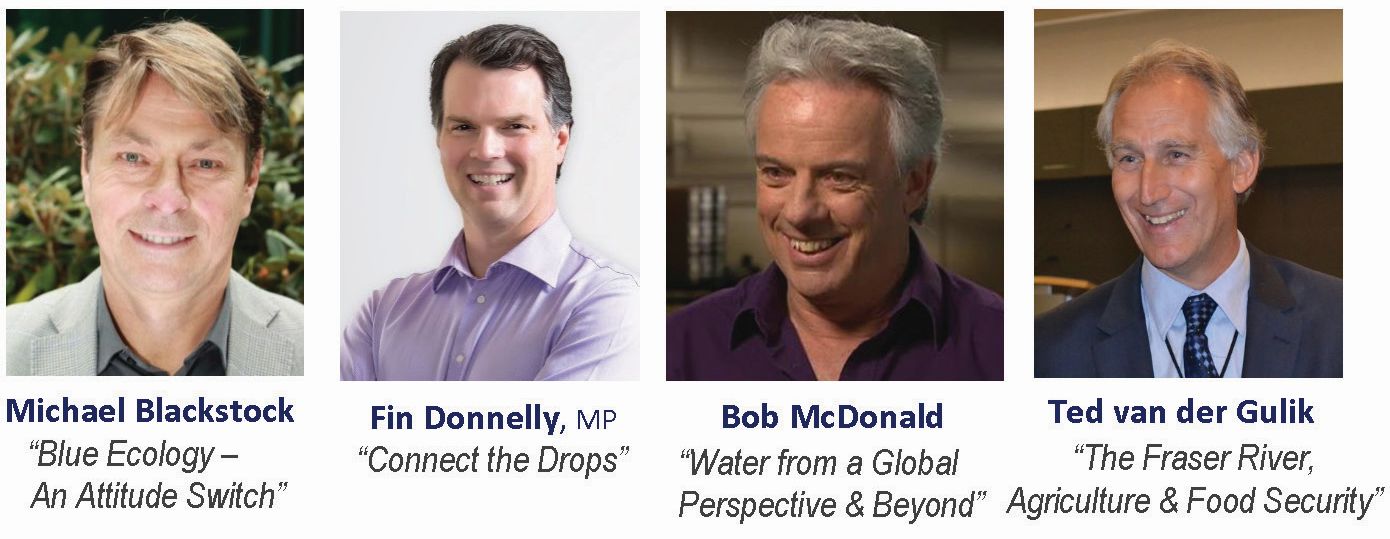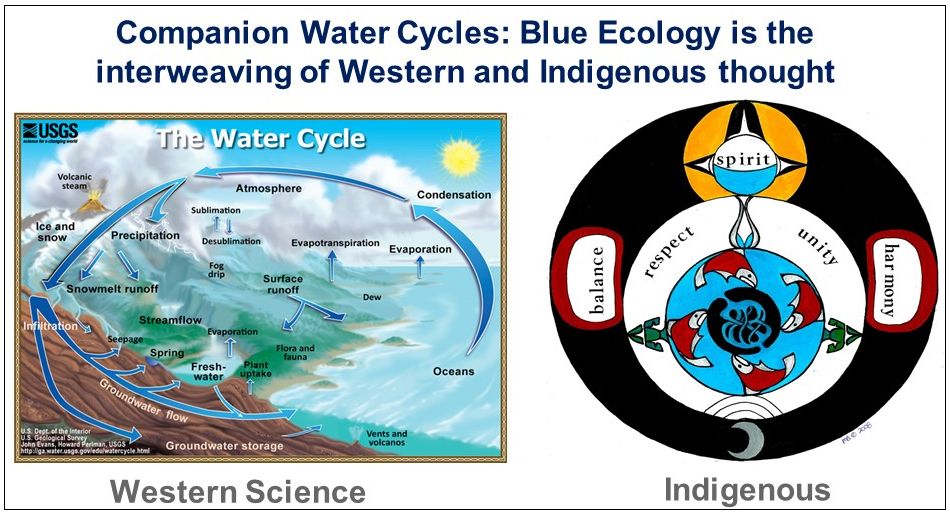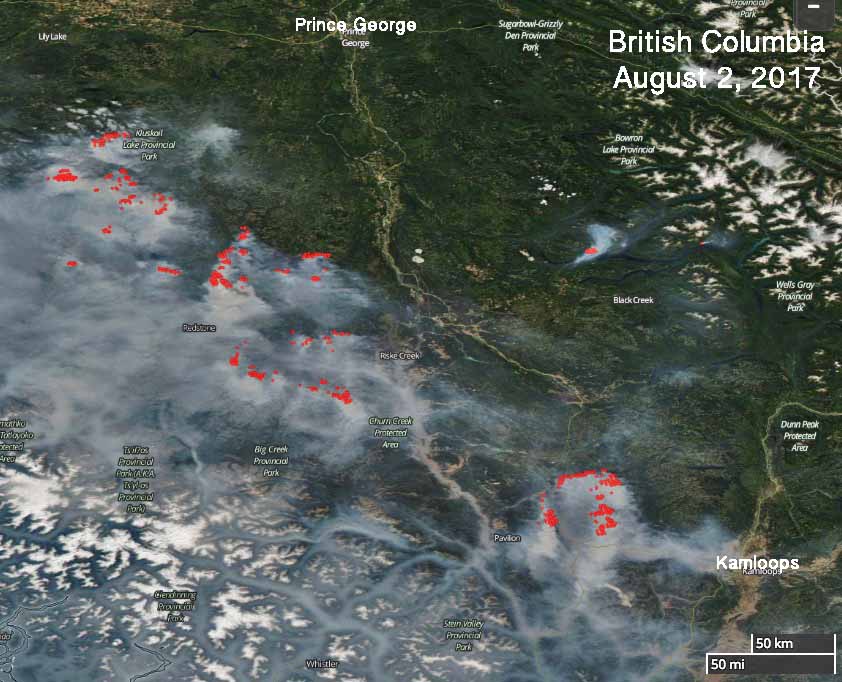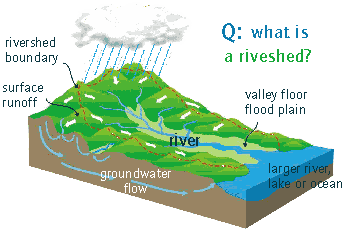LOOKING AT WATER THROUGH DIFFERENT LENSES: “The Blue Ecology concept for ‘interweaving’ Western and Indigenous thought goes to the heart of bringing different worlds together,” stated Fin Donnelly – Member of Parliament, founder & Chair of the Rivershed Society of British Columbia
Note to Reader:
Designed to be a conversation starter, the Blue Ecology Workshop in November 2017 will have a town-hall format to create a ‘sharing & learning’ atmosphere for interaction between the audience and the presentation team.
Michael Blackstock will be joined by two ‘water champions’ who have achieved national prominence – Member of Parliament Fin Donnelly, who has twice swum the length of the Fraser; and the CBC’s Bob McDonald, host of Quirks & Quarks – along with a supporting cast from the Partnership for Water Sustainability in British Columbia.
TO REGISTER, VISIT: https://www.civicinfo.bc.ca/event/2017/Blue-Ecology
Module 1 – Connect the Drops
“The flood, drought and fire extremes of 2017 provide both the backdrop and a focus for the Blue Ecology Workshop on November 28th in Richmond,” states Kim Stephens, Executive Director, Partnership for Water Sustainability in British Columbia.
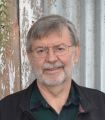 “It need not be doom and gloom. There is hope for future generations – especially if we take a water-first approach to setting priorities. The process for adapting to a changing climate starts with an attitude change.
“It need not be doom and gloom. There is hope for future generations – especially if we take a water-first approach to setting priorities. The process for adapting to a changing climate starts with an attitude change.
“Actually adapting requires transformational changes in how we apply hydrologic understanding, value nature, and service land – this is a unifying theme for the Blue Ecology Workshop.”
Towards Watershed Restoration
“The gravity of the situation calls for application of Sustainable Service Delivery principles to watershed restoration in the built environment,” continues Kim Stephens.
“Successful implementation depends on all the players – in particular politicians, planners, landowners, designers, implementers and asset managers – collectively choosing to embrace a ‘design with nature’ philosophical foundation.
“We must collaborate to then adapt our land use, infrastructure servicing and asset management practices appropriately!”
Interweaving Means…
“Hydrologists and water managers can help build a brighter future by rediscovering the meaning of water, and interweaving the predominant Western analytical models with the more intuitive indigenous models,” states Michael Blackstock.
“Blue Ecology’s philosophy is meant to be the bridge between these two cultural ways of knowing.”
Vision for a Water-Resilient Future
“Michael Blackstock has a vision for water. It is all-embracing. He asks us to look at water and the landscape differently,” states Fin Donnelly.
“Also, his Blue Ecology concept for ‘interweaving’ Western and Indigenous thought goes to the heart of bringing different worlds together.
“I share that vision; and was humbled when the Partnership for Water Sustainability invited me to add my ‘riversheds perspective’ to the Blue Ecology Workshop program.”
Bring Different Worlds Together
“I am excited to join the Blue Ecology Workshop team because the Partnership for Water Sustainability is a dynamic network of water professionals. Provincially significant, the Partnership does excellent work and has quietly grown in stature through its accomplishments over time.
“I like that the Partnership encourages water professionals to think in a new way – of the land, from the land.
 “I can relate to Michael Blackstock’s Blue Ecology vision in that it interweaves Western science with Indigenous traditional knowledge. In 1997, after my first Fraser River swim, the Squamish Nation honoured me with the name Iyim Yewyews, which means strong ‘swimmer in the animal world’ or orca. As steward of the sea the orca’s role is to ensure salmon are plentiful. If salmon flourish, then so will the orca. This is my life’s mission.”
“I can relate to Michael Blackstock’s Blue Ecology vision in that it interweaves Western science with Indigenous traditional knowledge. In 1997, after my first Fraser River swim, the Squamish Nation honoured me with the name Iyim Yewyews, which means strong ‘swimmer in the animal world’ or orca. As steward of the sea the orca’s role is to ensure salmon are plentiful. If salmon flourish, then so will the orca. This is my life’s mission.”
Reflections on the Summer of 2017
“We are now seeing the evidence pile up to confirm that the climate is indeed changing. Floods, drought and forest fires are occurring in rapid succession. Over the past Labour Day weekend, my trip through the Fraser’s interior brought home to me the impact of what the ‘new normal’ looks, feels and even smells like,” says Fin Donnelly.
The New Normal
“The experience was eerily strange. The roads were clear on what would normally be a busy weekend. The landscape on both sides was burned and scarred. There were no animals to be seen, and few people. There was a smell and taste in the air of burnt ash. In short, the aftermath of the forest fires was raw and real.
“I couldn’t imagine what it must have been like during the fires. The experience left me wondering – how can we live in these conditions, especially knowing these conditions are anticipated to intensify.”
“The impacts and consequences of this summer’s fires will be far-reaching. In a single forest fire season, British Columbia reportedly lost more than 5% of its Annual Allowable Cut of harvestable timber. The economic impacts on forestry dependent communities will be substantial.
“And the impacts on watershed hydrology will be just as significant. For years to come, Fraser River water levels (high and low) and quality will be affected. This all points to the importance of having a basin-wide strategy for climate adaptation and restoration.”
Watershed, Rivershed,
What’s the Difference?
“The Fraser River is my passion. The Fraser is one of the most diverse river basins in North America. The Fraser’s diversity, of both people and landscapes – is what inspires me,” explains Fin Donnelly.
“I use the term rivershed because it is more place-specific than watershed. It encourages a mental shift from human settlement to the larger interconnected natural environment.”
Restore the Fraser River
“I learned about the issues threatening the health of BC’s longest river in university. I experienced those issues and drew attention to the world’s greatest salmon river in a unique way, by twice swimming its 1,400km length. And because the need for Watershed CPR (Conservation-Protection-Restoration) is urgent, my goal is to inspire and encourage British Columbians to take action and apply CPR.”


